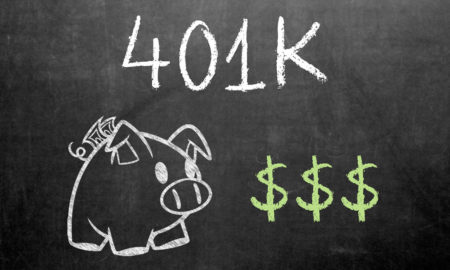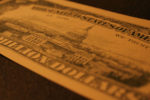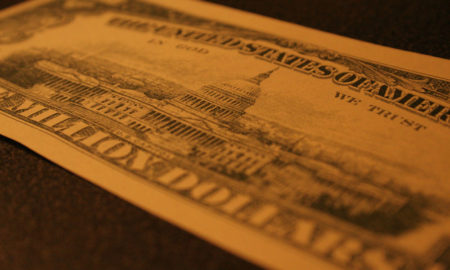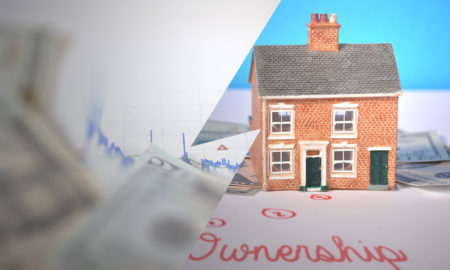

Deprecated: Implicit conversion from float 1758224739.182218 to int loses precision in /www/investmentzen_357/public/blog/wp-content/plugins/intelly-related-posts/includes/classes/utils/Logger.php on line 93
Deprecated: Implicit conversion from float 1758224739.182388 to int loses precision in /www/investmentzen_357/public/blog/wp-content/plugins/intelly-related-posts/includes/classes/utils/Logger.php on line 93
As the stock market continues to tumble, it’s easy to forget where it’s been. January of 2016 may have brought losses for the average American investor, but those who pay attention know that’s just par for the course.
Let’s not forget March of 2009, when the Dow Jones Industrial Average slithered down to 6,594.44 – much to the horror of well, basically everyone. And let’s not forget the many booms and busts that have taken place since, including 2015’s gains, which left hoards of Americans feeling rich for the first time in their lives.
Financial markets are built to ride the waves of time and prosperity. However, it doesn’t really matter over the long haul – that is, as long as the trajectory is up, and as long as you hold onto your investments instead of selling in a panic.
But there’s one way to ensure meteoric losses – or losses of opportunity at the very least. That’s not investing your dollars at all – and (gasp!) – hiding your cash in your yard instead.
Home Banking: It’s a Thing
The American Express Spending & Saving Tracker, a survey from American Express, shows that more than a few people are forgoing traditional investments – and even regular ol’ banks – in favor of hiding their money at home.
According to the survey, 57 percent of savers reported keeping their cash savings in a traditional bank in 2014. However, 53 percent kept some of their cash savings stashed away in a “secret location” – possibly a can hidden in the garage, an envelope under a mattress, or even in a frozen box of Encore Macaroni and Cheese.
Millennials were the generation most likely to tuck away their cash, with a whopping 67% of Millennials who held cash saying they stash it outside of a bank account.
This is the kind of stuff that happens when people begin to fear the markets, or maybe never learned not to fear them in the first place. Sadly, this mindset is especially prevalent among the older generation, says Certified Financial Planner, Matthew A. Cosgriff. After all, baby boomers lived through times when money in boring, traditional savings accounts earned considerable sums.
“The older generation can oftentimes feel safer in cash largely because they lived through the days when money markets were paying well over ten percent,” he says.
Low Interest Rates May Be Encouraging Cash Stashing Habits
Sadly, those times are over – at least for now. Even the most lucrative Certificates of Deposit (CDs) and Money Market Accounts are offering rates that hover just over 1 percent. And obviously, stashing cash under your mattress pays zero. Nada. Zilch.
When you forgo investing to hide your money at home, you’re setting yourself up for a daily loss of capital. And if you stash that money way long enough, you’ll miss out on a lot more than that.
Unfortunately, those with a mindset of fear tend to have trouble grasping this concept. In their mind, the cash in their homes is “safe,” while investing is “risky.” Never mind the fact that a fire or natural disaster could make their “savings” disappear in an instant, and that cash stored at home doesn’t enjoy protections afforded to dollars in an FDIC-insured checking or savings account.
For far too many people, “one bird in the hand is worth two in the bush” – and they would rather end up with something than nothing at all. When you’re genuinely fearful, it’s perfectly fine if that “something” is a heaping pile of cash that loses value every day.
Money In a Can: What You Lose
While having a hoard of money at home might help you sleep at night, the losses you’ll suffer over the years and decades is the stuff of nightmares.
“If you stash your cash under a mattress, you miss out on investing returns, and compounding interest that allow those returns to grow,” says financial expert Jacob Wade of IHeartBudgets.net.
To illustrate this, let’s compare two individual stories – two brothers who inherited $10,000 in 2006. After celebrating their windfall, let’s imagine one brother cashed his check and buried the cash in his yard, while the other invested in Vanguard Total Stock Market Index – Admirals Fund (VTSAX).
If both brothers decided to “cash out” today, the home-banking brother would still have the same $10,000 stashed away. Meanwhile, brother #2 would have a fund worth $18,306.52 after a period of ten years. Just by investing in a low-cost, hands-off index fund, he nearly doubled his money.
Worse, brother #1 would have experienced the backend of failing to invest – the constant erosion of his capital due to the power of inflation. According to the U.S. Department of Labor’s inflation calculator, $10,000 in 2015 has the same “buying power” as $8,505 did in 2006. In other words, his inheritance actually lost $1,500 in value.
The moral of the story here is this: When you don’t put your money to work, your money will actually work against you. The only way around this is to play the game – to invest without fear and to keep investing for the long haul.
When you don’t put your money to work, your money will actually work against you. Click To Tweet
A Basic Financial Education Can Help You Conquer Your Fears
While an inclination to hide money at home won’t disappear overnight, a solid financial education can help you overcome your fear of investing.
“Everyone should have a basic understanding that the market goes up and down,” says Wade. “But everyone should also know that, in the long run, the market always goes up.” And for most of us, this upward movement is something to take advantage of, not something to be feared. For others, it’s the only way to truly become rich.
“Investing is your only real opportunity to become financially independent, outside of making an exorbitant amount of money at your job,” says Wade.
If you’re worried about investing on your own, rest assured this doesn’t have to be a one-man (or one-woman) job. In addition to taking advantage of the many online resources available, individuals can hire a personal financial advisor to steer their conscience in the right direction.
“Meet with a financial planner that can help calm your fears about losing money,” says Wade. “They can show you your complete financial picture, including where you currently stand, how much you need to save for retirement, and how to invest wisely based on your risk tolerance.”
At the very least, they can show you how much you may be missing out on by keeping your money hidden away where it can’t work for you. As always, the best strategy involves becoming an informed consumer. Once you realize the risks of holding too much money in cash, you can research and choose the right alternative for your money.
“Individuals should always know how much they are paying in fees and understand on a basic level what the investment vehicle is designed to do and how success can be tracked,” says Cosgriff.
The Bottom Line
At the end of the day, it’s up to you to decide what to do with your extra dollars. You may have the right to treat your money however you want, but you should be well aware of the consequences.
Your house may never burn down, and the neighborhood thieves may never find your stash, but you could miss out on decades of growth and compound interest if you refuse to get in the game. That’s why hiding money at home isn’t “safe” at all. That comfort you feel – the security you gain – is nothing but an illusion.
Real safety comes with having enough money stashed away for a rainy day, retirement, and whatever else life brings – good or bad. And if you truly want to maximize your financial potential, you have to let your cash lead the way.

































